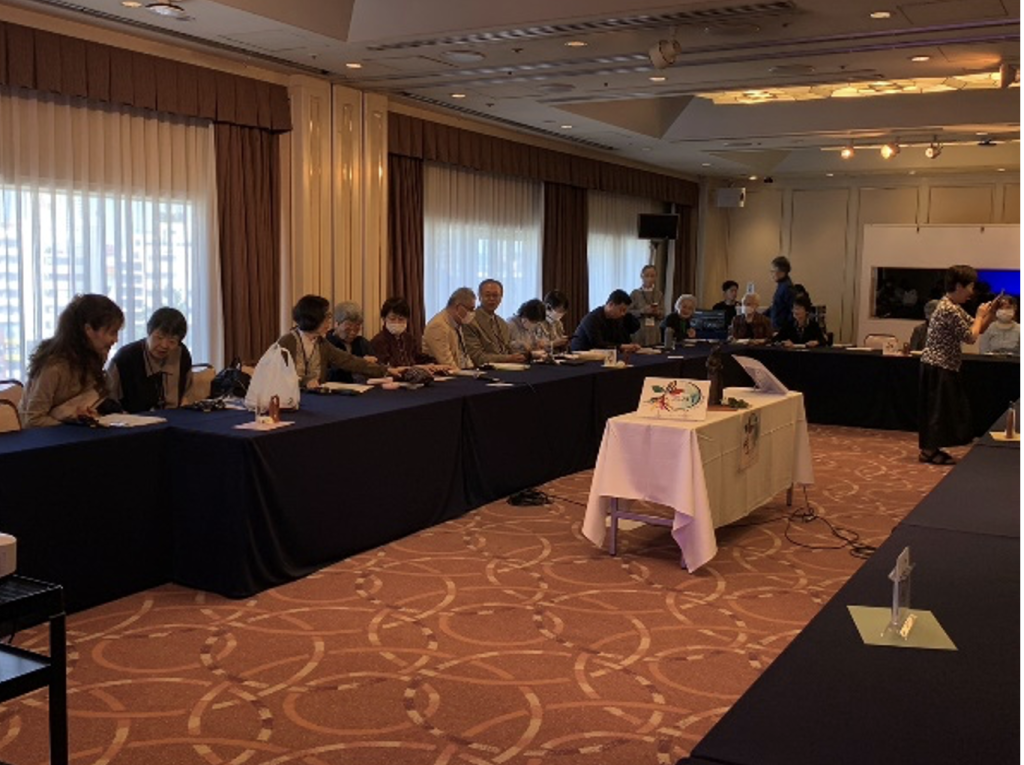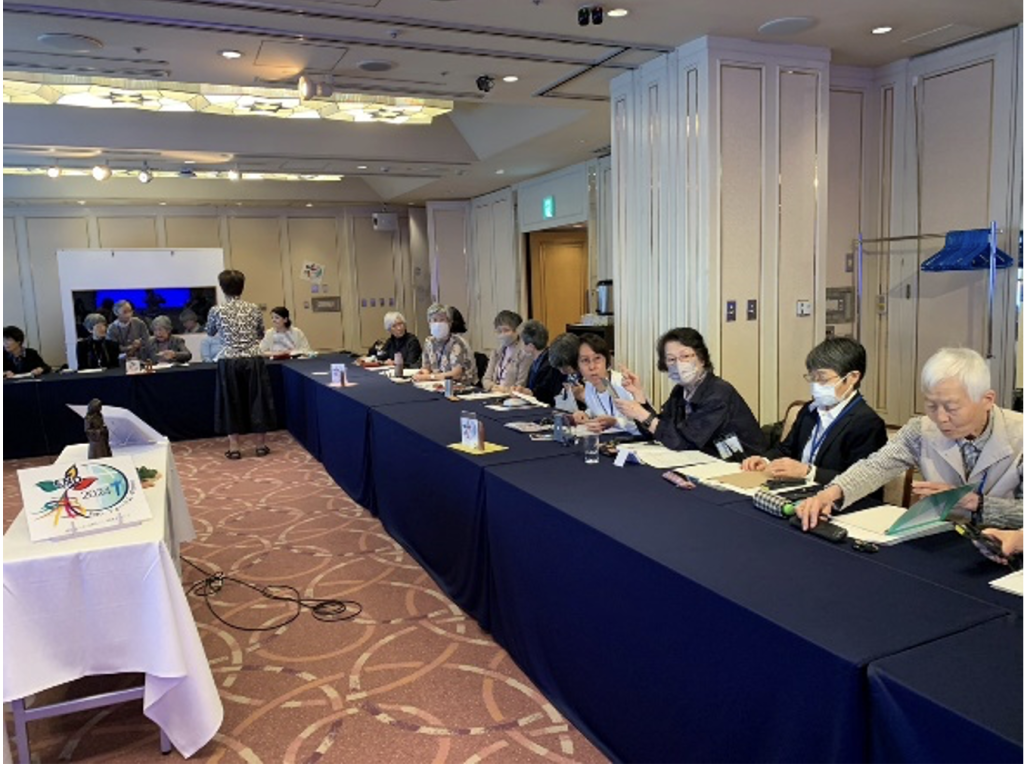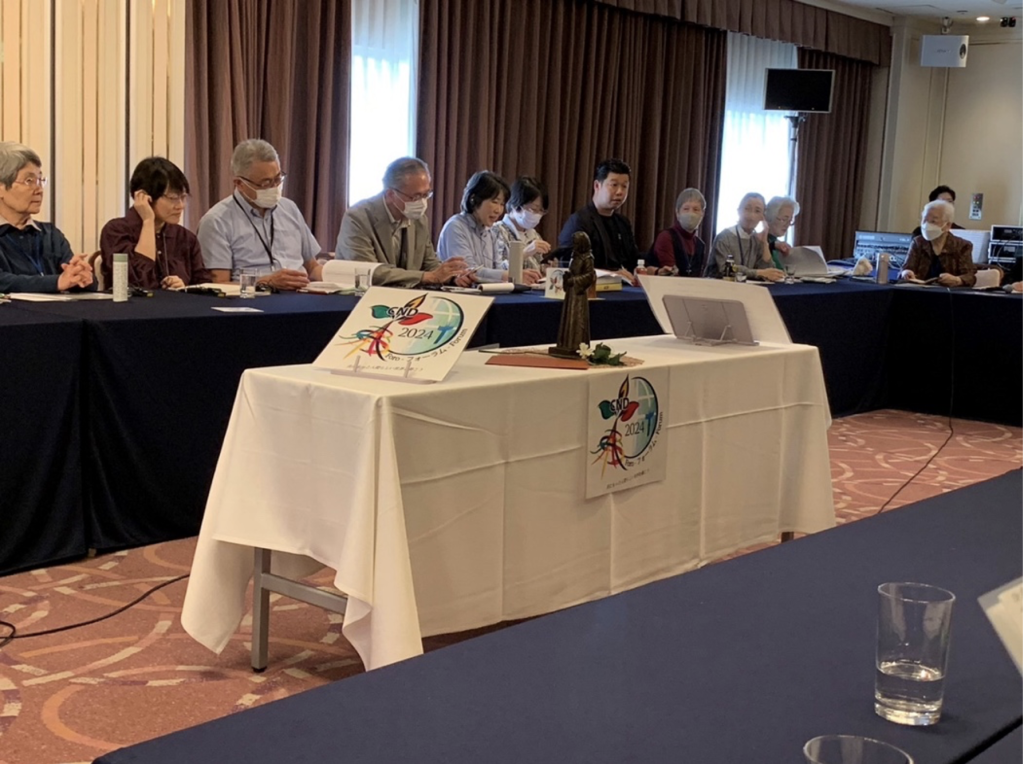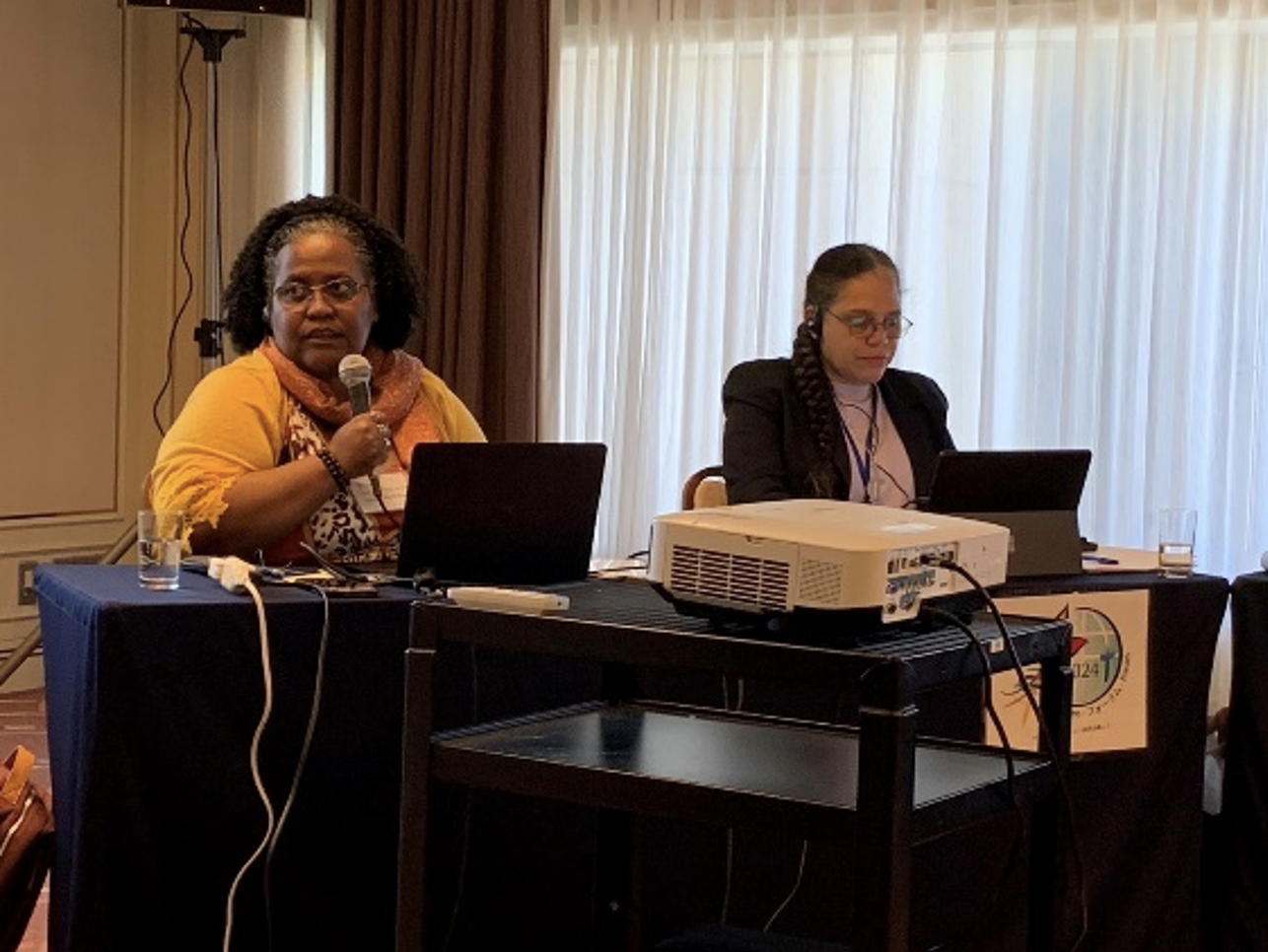Workshop Newsletter (1)
Friday, May 3
On a beautiful day in May, we started the first day of our long-awaited workshop. Forty CND sisters and associates began a journey with Ms. Jeanne-Marie Rugira to understand the impacts of colonialism and the discrimination it perpetuates.
First, the attendees were impressed by the layout of the venue. In her introduction to the workshop, our Provincial leader Sister Date explained how, upon seeing a classic school classroom, Jeanne-Marie remarked, “This is a colonialist shape,” and rearranged the seating into a U-shape so that everyone could see each other’s faces. The traditional layout of a classroom creates a hierarchy and results one-way communication… It was an experience that made us realize there is a fixed consciousness in our casual words and actions.

Sister Ercilia Erazo, the Associate to the Congregation Leader, then explained how this session was planned for the formation of all sisters and associates in the Congregation’s work to eliminate all discrimination. She also explained that this session was a continuation of the 2016 and the 2021 General Chapter orientations. The workshop will conclude with the Forum in August of this year. We were reminded that we are participating in this formation to live our orientations, become more aware of discrimination and transform our society into a more humane one.
In the morning session, participants learned from lectures and videos about the historical and geopolitical background of racism, which was created by imperialist colonial policies. Here we were confronted with the fact that CND was created in a colonial context. Marguerite left France with the vision of “building a Marian city that would carry the Gospel to the Indigenous peoples through a community like that of the first Christians.” We realized that we had to rethink what this meant to the other side, even though Marguerite’s mission and her attitude toward indigenous women and children were not intentionally prejudiced. Although this is painful for us, we felt it is an issue we must face when considering our future missionary style.

In the afternoon session, we watched a shocking video, The Human Zoo. It explored how Indigenous Peoples were brought to Europe and North America in the 19th and 20th centuries and treated as spectacles. This practice, born out of anthropological curiosity, meant that individuals, including young children, were taken from their home countries, and many suffered health problems and even died due to the different climate and poor living conditions. Their remains were kept as specimens and were never buried humanely. I could feel the atmosphere in the room getting heavier as the video played. After watching the video, the fact that Japanese people with disabilities have also been made a spectacle of was brought up, and it struck me that this was not an isolated case. It made me think that most people likely feel a separation from those who are different to us.
In the sharing that followed, participants talked about their awareness of discrimination, their fear of discriminating or being discriminated against and the need to see different aspects of what they had taken for granted or thought was reasonable. It was a day of sincere prayers and hopes for the grace to be free from discriminatory attitudes.

